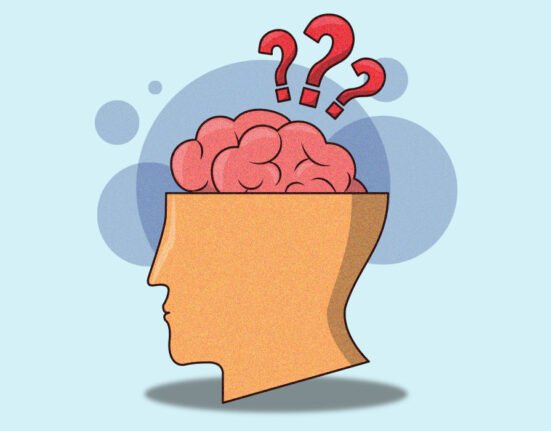In today’s world which consists of a fast-paced life from running here and there for jobs, college, and even for everyday groceries there is a rush or everything. Technological advancement has created a way for a lifestyle that is lethargic and requires hours and hours of sitting at a desk job while relying on processed foods. In this digital age, we tend to be surrounded by screens in every sphere of life. From using mobile phones, and working on laptops and tablets to ordering your food online at the cafe, everything seems to be dominated by screen.
Such a huge amount of screen time is indeed harmful to us, apart from all the impact it could have on our health one alarming fact to notice is a problem in breathing or ‘Screen Apnea’. Dr. Linda Stone, a former Microsoft executive and researcher coined the term Screen Apnea in 2007. Screen Apnea is the unintentional or subconscious habit of holding our breath or not breathing properly while using digital devices.
The Mechanism of Screen Apnea:
Screen apnea tends to be rooted in our body’s response to stress. It is our body’s instinct to engage in flight or fright in response to stress. When using any kind of digital device our nervous system is stimulated with new kinds of stimuli or information. Since our whole is covered with continuous usage of mobiles phones, TVs, and laptops the content information keeps the nervous system on alert for info. Our bodies are not used to being constantly stimulated, hence with so much information to process at once our brain assesses everything to determine whether coming information is a threat or not.
So the fight or flight response disrupts our breathing pattern to focus on the multiple coming information. It reduces the importance of other needs in our body such as breathing to concentrate more on the info hence beginning the cycle of screen apnea.
The Irony of Connection:
Leaving the biological perspective aside, it is so ironic that the digital age that aims to promote connectivity and togetherness with the world around tends to do the quite opposite thing. While technology allows us to develop and grow with the world the virtual world tends to make us absent from the digital world connection cutting every one of us from our surroundings. It tends to deprive use of real-world connections and sensations through detachment from people. The prolonged use leads to a feeling of isolation and affects mental health causing problems such as anxiety, stress, and even loneliness.
Psychological Effects of Screen Apnea
1. Stress and Anxiety:
Not breathing properly leads to a lack of oxygen intake due to screen apnea. In response to any kind of stress, our bodily tend to release stress hormones to alert our body mechanisms to potential threats. Increased level of stress hormones heightens the anxiety level of a person and affects both physically and psychologically.
2. Reduced mental functioning:
Oxygen is crucial to support our basic and complex life functions. Reduced oxygen tends to cause problems in mental functioning such as concentration, memory, thinking, and problem-solving. Due to screen apnea low oxygen could affect a person’s ability to process information properly.
3. Emotional Regulation:
Screen Apnea could interfere or emotional regulation due to low oxygen intake. It disrupts the ability to maintain emotions, causing us to feel irritable, have mood swings, etc.
4. Sleep Disruptions:
Excessive screen time tends to disrupt our sleeping patterns, caused by the blue light from the screen. It reduces the erudition of the sleep hormone called melatonin. Disrupted sleep leads to psychological effects on a person with symptoms such as irritability, agitation, anxiety, etc.
Management and Coping
1. Mindful Awareness:
Mindfulness has been practiced worldwide since ancient times for our mental and spiritual well-being. Having mindful awareness about everyday habits of breathing while using screens can prevent sleep apnea. Set reminders to practice deep breathing techniques with rhythm to counteract the physical strain caused by screen engagement.
2. Screen Hygiene:
Limiting the usage of screen time and maintaining screen hygiene in the form of regular breaks, maintaining screen distance, constant eye blinking, and using blue light filters could help with the reduction if screen apnea episodes.
3. Digital Detox:
Despite the hectic work schedule, it is beneficial to completely take a break from screen time altogether for a period of time. Our body can be relaxed and our mind can focus on our bodily sensations and surroundings.
4. Physical Activity:
Engaging in physical activities is always a good choice for physical and mental health Taking a walk in nature and playing some outside games, is an activity as simple as this that can make a huge difference in our lives. It promotes better breathing and reduces stress-related problems.
In a world dominated by the digital age and technology the life we are living makes it almost impossible to completely separate ourselves from it. However, phenomena like screen apnea unfolded as a result of the crucial connection between technology and psychology. The subconscious effort to give importance to virtual necessity reminds us of how we are deeply linked to technology and the modern fast-paced life on a psychological level. There is a need to reflect on our screen habits because we have to use them in everyday life so it is important to be mindful of our activity. Healthy choices in life, which include practicing digital detoxification, mindfulness, and balancing usage, take a step towards preventing the toll on mental well-being.













Leave feedback about this